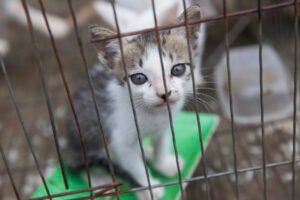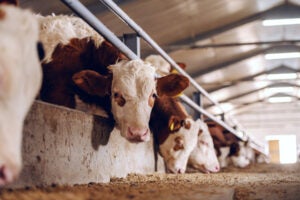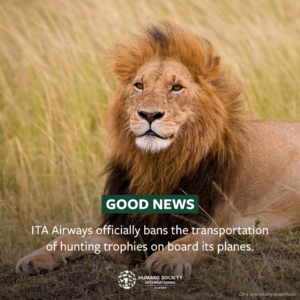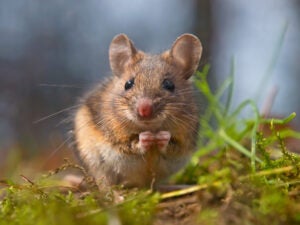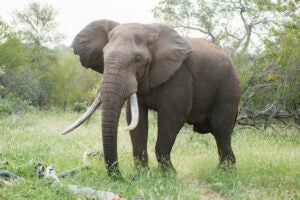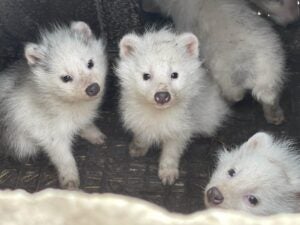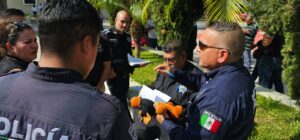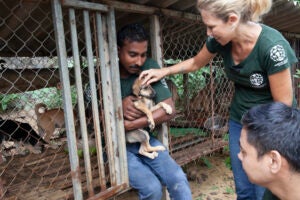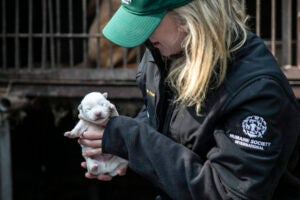
SEOUL—One month after the South Korean government announced a bill to ban the dog meat industry, 27 dogs rescued from a dog meat farm in Asan, Chungcheongnam-do have flown to the United States in search of loving homes. At the time of rescue in March this year by animal charity Humane Society International/Korea, these dogs—including Bumblebee, Parker, Trudy, Bruno and Mia—had not even been born yet when HSI/Korea saved their pregnant mums. Although previously too young to fly overseas, Nana, Nadia, Corbin, Covy Chico and the others are now old enough to make the journey. Mother dogs Raspberry and Zelda will also fly with their grown pups.
All had been fated to be killed for their meat as part of an industry that breeds and slaughters up to 1 million dogs a year for human consumption. They were saved as part of a 200-dog rescue when HSI/Korea worked with the farmer, who wanted to leave dog farming behind him and convert his land into a self-sufficient crop field growing cabbages and other vegetables.
With five legislative bills to ban the dog meat industry, and now the commitment of a government-backed bill, HSI/Korea says these 27 dogs are a reminder to policy makers that campaigners are counting the days for politicians to take action on a ban. The latest opinion surveys by Nielsen Korea in 2023 show that most South Koreans (87.5%) don’t eat dog meat and 56% support a ban.
Sangkyung Lee, HSI/Korea’s End Dog Meat campaign manager, helped rescue the dogs and said: “The dog meat farm where these 28 pups came from was a hellish scene. Some 200 dogs were locked in barren, metal cages in squalid conditions thick with feces, many suffering from malnutrition as well as painful skin and eye diseases. Thankfully, most of these 27 were too young to remember the trauma of those days, and it makes me so happy to know that they will soon be embraced with new names and cherished as loved family members in the United States. It’s one month since the South Korean government pledged to ban the dog meat industry, with each one of these dogs symbolising a day that we have waited for political action. We need to get this ban done so that no more dogs have to suffer for a meat that virtually no-one wants to eat.”
Since 2015, HSI/Korea’s Models for Change program has helped dog farmers in South Korea transition to new, more humane and profitable livelihoods such as chili plant and parsley growing or water truck delivery. HSI/Korea has permanently closed 18 dog meat farms so far and rescued more than 2,700 dogs who have flown to the United States, Canada and the United Kingdom to find homes, with a small number rehomed in South Korea.
After arrival in the United States, the 27 dogs will be settled at the charity’s care and rehabilitation center near Washington, D.C., where they will receive the love and comfort the dog meat industry denied them, including soft beds, nutritious food, toys, veterinary care and rehabilitation. After this initial phase, they will be transferred to shelter and rescue partners where they will be prepared for adoption into loving homes.
HSI’s rescues are conducted in compliance with national and local COVID-19 health and safety protocols. Following removal from farms, dogs were evaluated by a veterinarian. They were vaccinated against rabies, distemper, hepatitis, parvovirus, parainfluenza, leptospira, and canine influenza, and screened for respiratory illness as needed to ensure the health of each animal and comply with international export and import requirements.
Download Images of the Dogs Leaving South Korea at Incheon Airport
Download Images of the Dog Farm Rescue
ENDS
Media contact: Haewon Lee, HSI/Korea media and communications specialist: hlee@hsi.org

